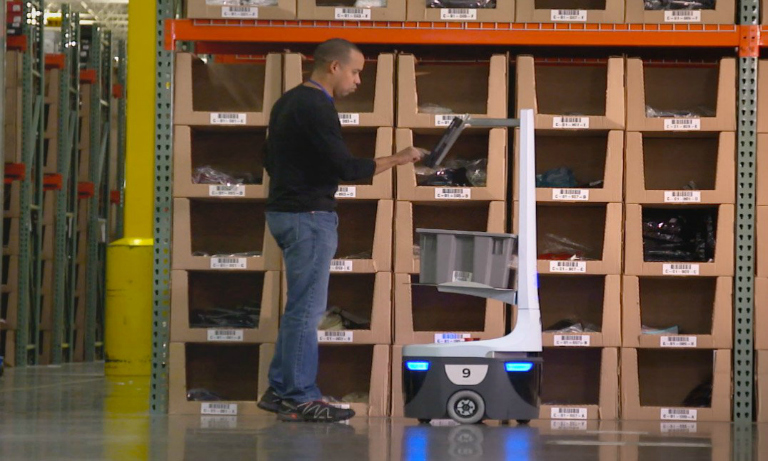 The human brain is limited and, as humans, we don’t always make the best decision
The human brain is limited and, as humans, we don’t always make the best decisionWhile the prospect of automation provokes fear of large-scale job losses amongst academics and everyday workers alike, the utilisation of AI in the workplace can be seen in a much more positive light.
New technology jobs
AI is creating a wealth of new job roles. According to Indeed research results, published on March 1, 2018, employee demand for AI-related roles involving machine learning and artificial intelligence has risen by 119% in the last 3 years. Over the same period, job seeker searches for common AI-related roles such as ‘artificial intelligence’ or ‘machine learning’ have grown by two thirds, as a share of all searches on Indeed.
There are AI related roles being created by corporate giants like Amazon, as well as smaller companies. This demand for AI talent outweighs the number of job seekers with AI skills, so individuals with AI skills are becoming a valuable commodity.
Harnessing AI to eliminate busywork
Busywork (or busy work) is widely defined as work that keeps a person busy, but has little value in itself. We all find ourselves engaged in it at times. By harnessing smart computers and taking away mundane tasks from humans, we can lighten workloads, alleviate stress and increase workforce efficiency in a wide range of industry sectors from the tech industry, insurance and accountancy through to fashion.
Safeguarding against workplace injury
Every year, thousands of people are injured in workplace accidents. According to a US study by Injury Claim Coach, thousands of needless injuries could be avoided by automating dangerous work activities.
5,190 people were fatally injured in the workplace in the US during 2016. Certain industries demonstrate much higher employee injury risk. Particularly hazardous was motor vehicle operation (1,012 fatal workplace injuries) and construction trades (736 fatalities). These are both industries in which automation is highly likely to take a firmer foothold in coming years.
Injury Claim Coach estimates that if American industry sees 14% automation by 2030, 3,450 lives would be saved. The employment of AI should not be seen as a threat to the livelihoods of our workforce, but as a way of preserving life itself.
Limiting human error
Whether we like to admit it or not, the human brain is limited and, as humans, we don’t always make the best decisions. While humans can call upon past experience to inform a choice of action, we operate with limited data sets.
In comparison, AI can draw upon millions of scenarios and organise this data to reach an optimal decision. While many business world decisions require uniquely human considerations, AI can certainly be harnessed to ensure businesses make their decision-making as logical as possible.
Artificial intelligence (AI) is now very much part of the real world we inhabit. It’s clear that AI will shape the economic future of the world and machine learning will play an increasingly important role in the way we work in the future, but the bad press that AI receives is largely unjustified. AI is actually working for us, not against us.
Recruiters love this COMPLETE set of Accredited Recruitment & HR Training – View Training Brochure








